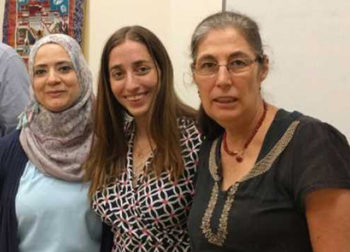By Mark Ellis —

“For the life of a creature is in the blood…” Leviticus 17:11
Many were startled in 2012, when it became evident that Israel ranked first in the world in the rate of non-Hodgkin lymphoma (NHL). This cancer of the blood is the fifth most common malignancy in Israel and the eighth most common malignancy among West Bank Palestinians, according to Israel 21C.
A new study has shed light on the risk factors for the disease among Jewish and Arab groups.
Israeli and Palestinian researchers, led by Dr. Ora Paltiel, director of the Hebrew University-Hadassah Braun School of Public Health, conducted a study among 823 Israeli Jews and Palestinian Arabs with B-cell NHL and 808 healthy people as a control group.
The study revealed that in the Jewish and Palestinian populations, overall B-NHL was associated with recreational sun exposure, black hair-dye use, a history of hospitalization for infection, and having a first-degree relative with a blood cancer, according to Israel 21C.
Surprisingly, there was an inverse association with alcohol use. Smoking and greater-than-monthly indoor pesticide use, were connected with certain subtypes of B-NHL.
There were variances among the groups tested. Among Palestinian Arabs, risk factors also included gardening and a history of herpes, mononucleosis, rubella, or blood transfusion, while these factors were not seen in the Israeli Jewish group tested.
Risk factors that applied to Israeli Jews only included growing fruits and vegetables, and self-reported autoimmune diseases.
“The study provided opportunities for training Palestinian and Israeli researchers, and will provide for intellectual interaction for years to come,” Dr. Paltiel noted. “The data collected will also provide a research platform for the future study of lymphoma.”
“The fact that risk factors operate differently in different ethnic groups raises the possibility that environmental exposures don’t have the identical effect in individuals of varying genetic backgrounds. But this could also be a function of many other factors such as diet, cultural habits, environmental and housing conditions.”
Other institutions that participated in the study include Al Quds University; Augusta Victoria Hospital; Beit Jalla Hospital; Hebrew University; Palestinian Ministry of Health; Rambam Medical Center; Technion-Israel Institute of Technology; Chaim Sheba Medical Center; Meir Medical Center; and Tel Aviv University in Israel, and Mount Sinai School of Medicine in New York.



